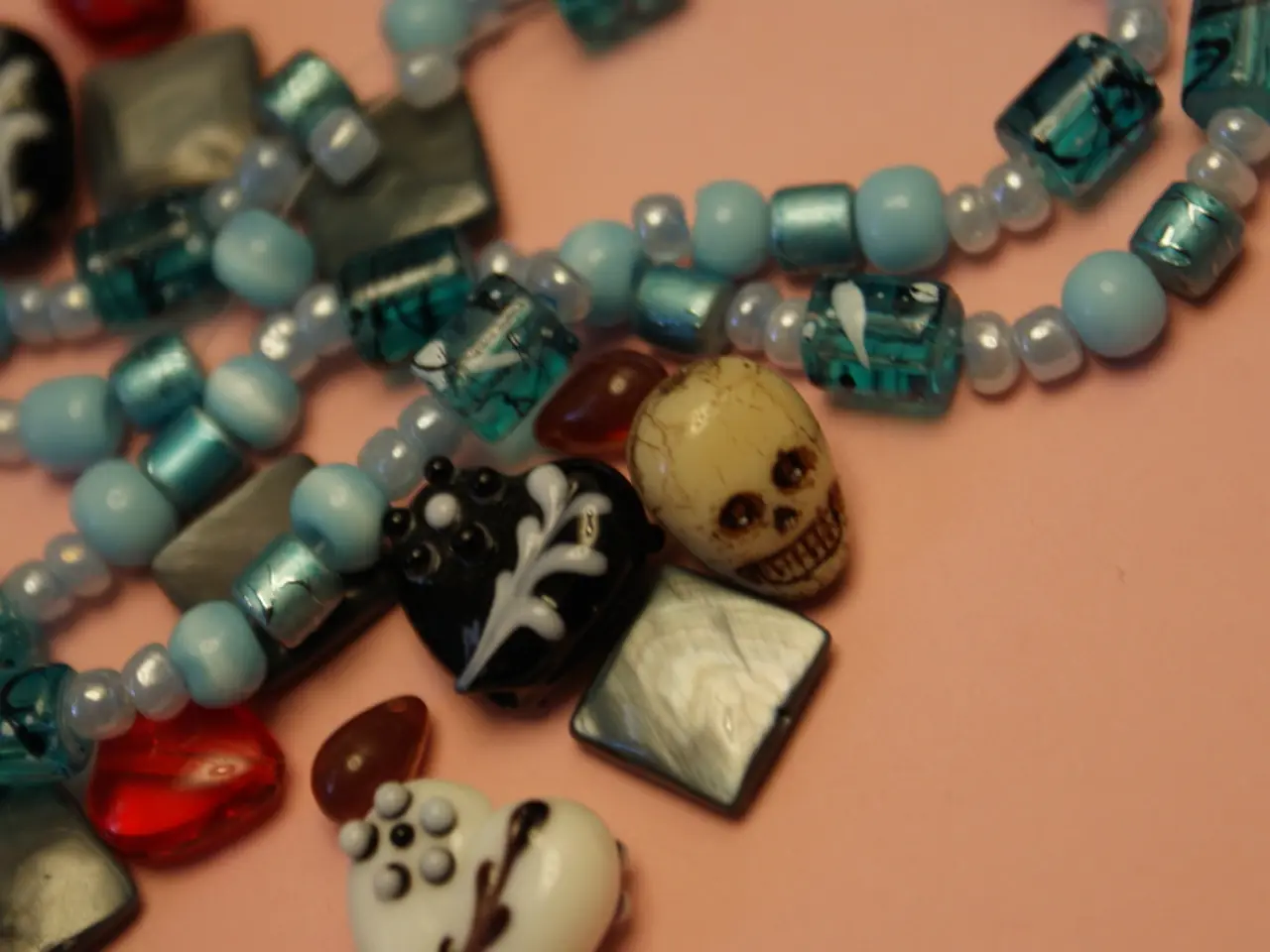Guide for Gemstone Jewelry Maintenance: Top Strategies for Preserving Your Precious Stones
In the world of jewellery, gemstone care is crucial for maintaining the long-lasting beauty and structural integrity of precious gems. This is particularly true for soft gemstones like opal, peridot, and tanzanite, which require gentle handling and specific care to preserve their sparkle over time.
First and foremost, gentle cleaning is key. A soft, lint-free cloth and a mild, non-abrasive soap with lukewarm water should be used to clean these stones. Avoid harsh chemicals, ultrasonic cleaners, steam cleaners, and abrasive materials, as these can potentially damage soft gemstones (Mohs hardness 1-4).
Water sensitivity is another factor to consider when caring for soft gemstones. Some stones can be sensitive to water or certain cleansing methods, so it's best to wipe them with a lightly damp cloth (using purified water only) if necessary, and then dry thoroughly.
Protecting these delicate stones from chemicals and heat is also essential. Avoid exposure to household chemicals, perfumes, lotions, hairspray, chlorine, and prolonged sunlight, which can cause discoloration, fading, or damage.
When it comes to wearing these gemstones, it's important to remove them before engaging in activities such as gardening, household chores, sports, bathing, or sleeping to minimize risks of scratches, chips, or breakage.
Proper storage is equally important. Soft gemstones should be stored separately in a soft, padded jewelry box or pouch to prevent scratching from harder jewelry. They should be kept in a cool, dry, and dark place to avoid heat and humidity damage. Consider using silica gel packets to control moisture.
Regular inspection is also necessary to check for any damage or loose settings, allowing for timely repair and preservation. For thorough cleaning or if you are unsure, have your soft gemstone jewelry cleaned and inspected by a professional jeweler periodically.
Understanding the vulnerabilities of these gemstones to abrasion, breakage, corrosive chemicals, heat, and strong light is essential in maintaining their beauty. Regular cleaning helps maintain their beauty and to check the security of gemstone settings and bead strings, and the proper operation of hinges, clasps, and safety chains.
Unfortunately, some treatments on stones, such as emeralds, can be harmed by solvents that remove dyes and filling materials used to disguise fractures. Amber may craze with age, and opal may craze (develop intersecting fractures) with age due to drying out.
Chlorinated water in swimming pools and hot tubs can damage jewellery, and strings of beads and jewellery incorporating closed-back settings should not be immersed in water. Biogenic materials like pearl, coral, and shell, porous stones such as opal and turquoise, malachite, rhodochrosite, lapis lazuli, and peridot are vulnerable to chemical damage.
Pearls, coral, and other vulnerable materials should be gently cleaned with a soft, dry cloth before storage. Sunlight may fade some dyed stones, weaken the body color of some transparent stones, and fade coral, conch, and melo pearls.
Chemical damage to gemstone jewellery can occur from exposure to commonly used fluids, strong acids in jewellery workshops, and household cleaners such as bleach. Pearls and shells are sensitive to heat and dry conditions, which can weaken their structure and cause fractures.
Lastly, it's important to insure your gemstone jewellery against damage and loss, and values may be updated by appraisal by jewellery valuers registered with the Jewellery Valuers Association or the National Association of Jewellers.
By following these practices, you can help preserve the long-lasting heirloom sparkle of soft gemstones like opal, peridot, and tanzanite.
- To ensure the longevity of soft gemstones, it's recommended to avoid using harsh chemicals, ultrasonic or steam cleaners, and abrasive materials during cleaning processes.
- In addition to gentle handling and cleaning, it's crucial to protect soft gemstones from household chemicals, perfumes, lotions, chlorine, prolonged sunlight, and heat to avoid discoloration, fading, or damage.
- In the realms of fashion and lifestyle, soft gemstone jewelry should be removed before engaging in activities such as gardening, sports, and swimming, as well as during sleep and bathing, to minimize the risk of scratches, chips, or breakage.








